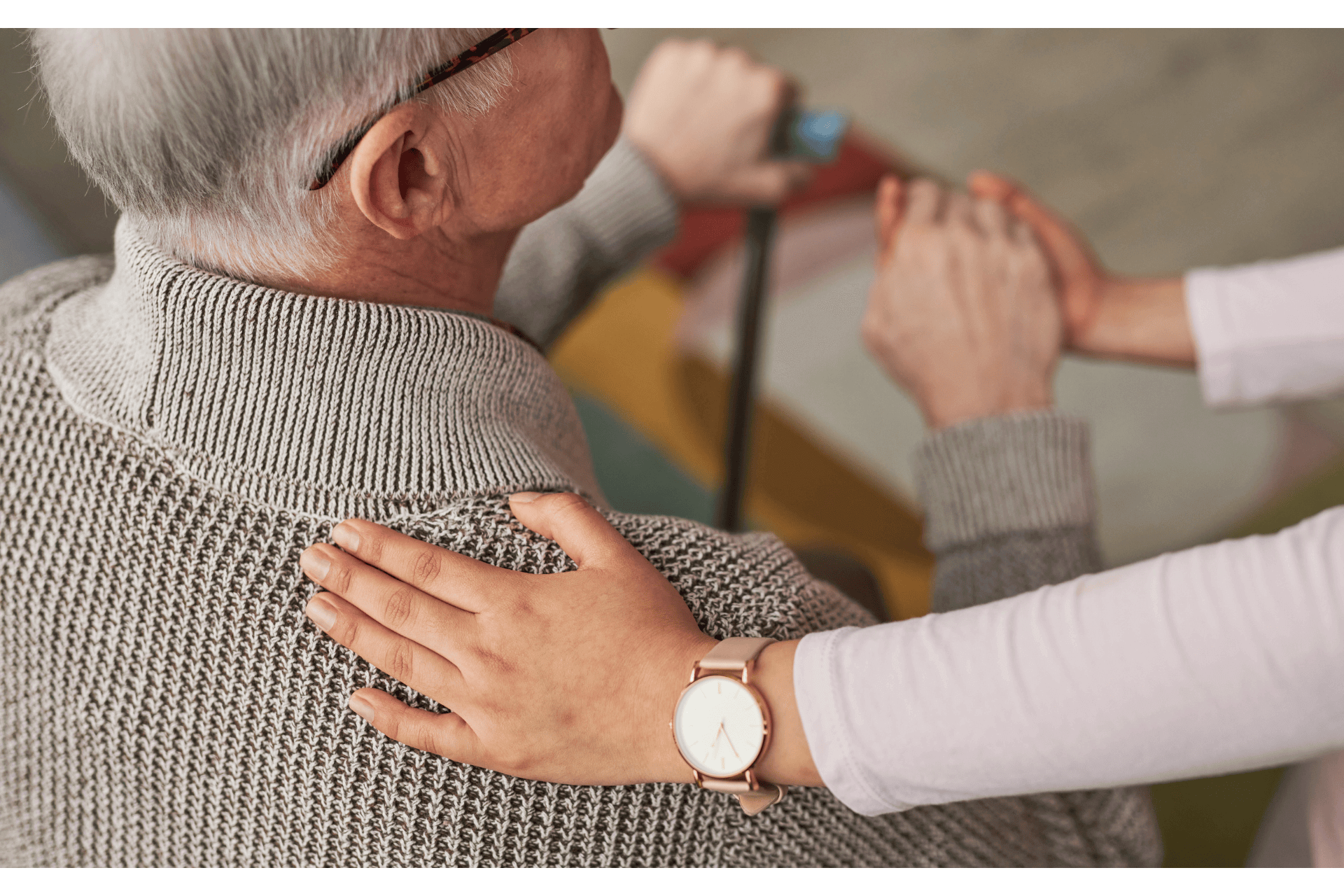Are you supporting or caring for a loved one with Parkinson’s disease?
Parkinson’s is a progressive neurodegenerative disorder that affects movement and causes tremors, rigidity, and slowness in movement. Parkinson’s symptoms also include mobility struggles, sleep disturbances, mood changes, and gastrointestinal issues.
The best way to support a loved one with Parkinson’s is to better understand the condition and how it affects their quality of life. Then, you can be there to provide support so they can stay healthy, safe, and maintain their independence as long as possible.
Keep reading to get our practical, caregiver advice on managing mobility and quality of life for Parkinson’s patients.
Understanding mobility challenges
Mobility is a daily struggle for those with Parkinson’s. Parkinson’s symptoms include mobility challenges (including gait abnormality and poor balance), making your legs feel heavy and like they’re dragging, causing your body to shuffle. Turning your body becomes difficult, and you may freeze or fall.
If you know someone with Parkinson’s, you’ve likely observed walking changes, including:
- Smaller steps and slower speed
- Less movement in their trunk (midsection)
- Feet landing flat (rather than on the heel)
- Heavy or dragging legs
- Less or absent arm swing on one side of the body
- Feet positioned closer together
- Temporary “freezing” (or an involuntary inability to move)
If you are caring for someone with Parkinson’s disease symptoms, you can provide support to ensure they are safely mobile. Exercise can help manage mobility challenges. A mix of aerobic activity, strength training, balance/agility/multitasking exercises, and flexibility movement. Consult a physical therapist for advice on what exercise your loved one should do to strengthen their mobility and strength.
For greater mobility independence, Parkinson’s patients may use walkers, canes, or crutches for safer walking. Treatment for Parkinson’s may include surgery to lessen the side effects and symptoms, but there is currently no cure for the disease.
Managing medication effectively
Patients are often on a variety of Parkinson’s disease medications. They may need your help to ensure their medications are reviewed, stocked, and taken on schedule.
Here are a few easy ways you can help them manage their medications:
- Divide their pills into a pill organizer
- Set alarms so they remember critical medication times
- Keep a medication journal to track any side effects and observations
- Talk to the patient’s doctor about their Parkinson’s disease medications. Some may negatively interact with certain foods, activities, or other medications
Importance of establishing daily routines
Daily routines provide structure and help ensure the patient’s needs are met. Work with the Parkinson’s patient and their health care team to create a daily routine or checklist. Their checklist may include:
- Medication schedules
- Exercise routines
- Time for rest
- Hobbies and wellbeing activities
- Sleep and nap schedules
- Social activities
Keep the schedule flexible to include irregular needs like doctor’s appointments, occasional visitors, and other weekly or monthly household tasks (like cutting the lawn, cleaning, and paying bills)
We should emphasize the benefits of a structured daily routine for individuals with Parkinson’s disease symptoms. How to create a flexible but consistent daily schedule (a couple of examples):
Enhancing the quality of life for elderly Parkinson’s patients
In addition to the tips already covered above, the biggest way you can support loved ones with Parkinson’s is to provide mental and emotional support. Understand their abilities and limits and provide fun and engaging daily activities.
Ask them what they enjoy doing and work them into their daily schedule. They may enjoy playing games, listening to music, or socializing with friends.
As their caregiver, you can find resources online to help you better understand the disease and how you can best support someone with Parkinson’s. Here are a few direct, local resources to check out:
- https://www.parkinson.org/resources-support
- https://www.parkinson.ca/resources
- https://parkinson.bc.ca/resources-support
Self-care tips for caregivers
Let’s not forget that you need to be at your best to care for someone with Parkinson’s. This means taking care of your physical, mental, and spiritual self as well.
Include time in your schedule for self-care, healthy eating, exercise, and social activities. If you are a full-time caregiver, don’t forget you can bring in respite services so you have a break to take care of yourself and others in your family.
Hero Home Care provides respite care for the elderly and those with conditions like Parkinson’s who need extra support at home. Our heroes come in as needed (respite services), part-time, or full-time to support their medical, social, and domestic support needs.
Being proactive for Parkinson’s patients
Caring for a loved one with Parkinson’s can be overwhelming. Remove the overwhelm by doing your research to better understand the disease and your loved one’s mobility needs, medications, and how routines are important to maintaining their independence and quality of life.
If you need help, our heroes are standing by to provide the support you need. Book a complimentary in-home care consult today to get started.

